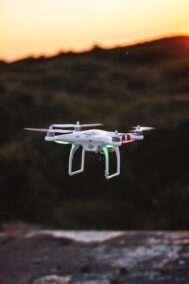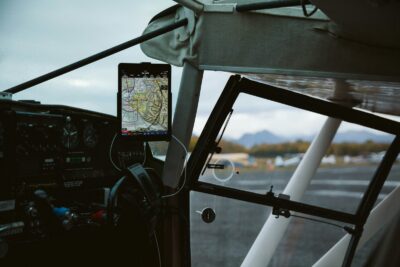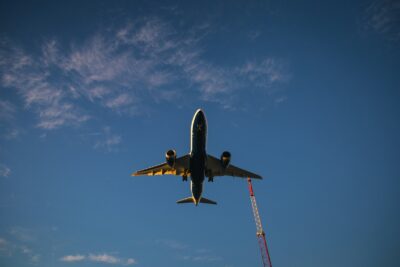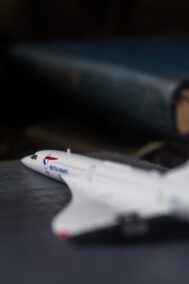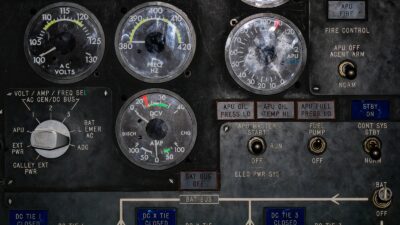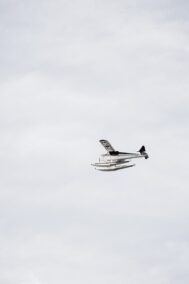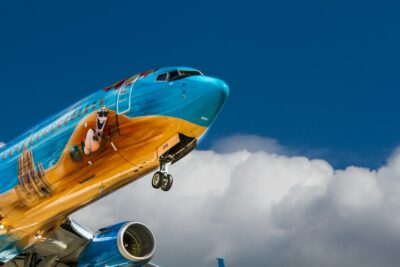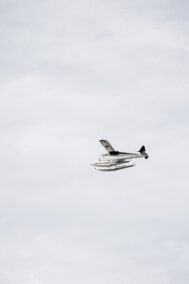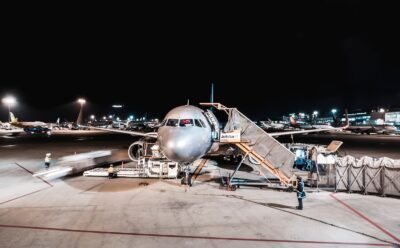Unlocking the Potential of Connected and Autonomous Aircraft
5G-enabled connectivity offers unprecedented opportunities for improving the performance, safety, and sustainability of connected and autonomous aircraft. The introduction of 5G technology is poised to revolutionize the aviation industry, particularly with regards to connected and autonomous aircraft. In regions like Saudi Arabia and the UAE, where aviation plays a crucial role in economic development, the adoption of advanced technologies is essential for maintaining competitiveness and efficiency.
Optimizing Performance and Efficiency
One of the primary benefits of 5G technology in aviation is its ability to optimize aircraft performance and efficiency. With ultra-low latency and high bandwidth, 5G enables real-time data transmission and processing, allowing aircraft systems to communicate seamlessly with each other and with ground-based infrastructure. This connectivity facilitates dynamic adjustments to flight paths, fuel consumption, and maintenance schedules, leading to significant improvements in operational efficiency and cost savings.
Enhanced Safety and Reliability
Safety is paramount in aviation, and 5G technology plays a crucial role in enhancing safety and reliability for connected and autonomous aircraft. By enabling instant communication between aircraft and air traffic control systems, 5G reduces the risk of mid-air collisions and allows for more precise navigation in congested airspace. Additionally, autonomous aircraft can leverage 5G connectivity to access real-time weather updates, air traffic information, and predictive maintenance alerts, ensuring safe and efficient operations under all conditions.
Environmental Sustainability
The adoption of connected and autonomous aircraft technology powered by 5G can also contribute to environmental sustainability in the aviation sector. By optimizing flight paths, reducing fuel consumption, and minimizing emissions, these advanced systems help mitigate the environmental impact of air travel. In regions like Saudi Arabia and the UAE, where there is a growing emphasis on sustainable development, the deployment of eco-friendly aviation solutions is essential for meeting environmental targets and reducing carbon footprints.
Investing in the Future of Aviation
Driving Innovation and Competitiveness
The implementation of connected and autonomous aircraft technology represents a significant investment in the future of aviation. In Saudi Arabia and the UAE, where there is a strong focus on innovation and technological advancement, embracing 5G-enabled aviation solutions is essential for maintaining competitiveness in the global market. By leveraging cutting-edge technologies such as Artificial Intelligence and Blockchain, aviation stakeholders can drive innovation, improve operational efficiency, and deliver superior passenger experiences.
Empowering Autonomous Flight
Autonomous flight is a key area of focus for the aviation industry, and 5G technology is instrumental in empowering this transformative capability. With advanced sensors, real-time data processing, and AI-driven decision-making, autonomous aircraft can navigate complex airspace with precision and reliability. In addition to enhancing safety and efficiency, autonomous flight offers the potential to reduce pilot workload, lower operating costs, and expand access to remote regions, opening up new opportunities for air transportation.
Collaborative Partnerships and Ecosystems
The success of connected and autonomous aircraft relies on collaborative partnerships and ecosystems that bring together industry stakeholders, regulators, and technology providers. In Saudi Arabia and the UAE, fostering a supportive ecosystem for aviation innovation is crucial for accelerating the adoption of 5G-enabled solutions. By facilitating collaboration between government agencies, airlines, manufacturers, and technology startups, these countries can drive the development and deployment of next-generation aviation technologies.
Conclusion: Transforming the Future of Flight
In conclusion, the integration of connected and autonomous aircraft technology powered by 5G has the potential to transform the aviation industry in Saudi Arabia and the UAE. By optimizing performance, enhancing safety, promoting sustainability, and driving innovation, these advanced systems pave the way for a more efficient, reliable, and environmentally friendly aviation ecosystem. As stakeholders in the region continue to invest in these groundbreaking technologies, they are not just shaping the future of flight but also positioning themselves as global leaders in aviation innovation.
As we look ahead, the continued development and adoption of connected and autonomous aircraft technology will undoubtedly unlock new opportunities for growth, efficiency, and sustainability in the aviation sector. By embracing these innovations and fostering collaboration across the industry, Saudi Arabia and the UAE can chart a course towards a future where connected and autonomous aircraft revolutionize air travel, making it safer, greener, and more accessible for all.
#ConnectedAircraft, #AutonomousAircraft, #AviationTechnology, #BusinessInnovation, #SafetyFirst, #SustainableAviation, #FutureOfFlight, #SaudiArabia, #UAE





